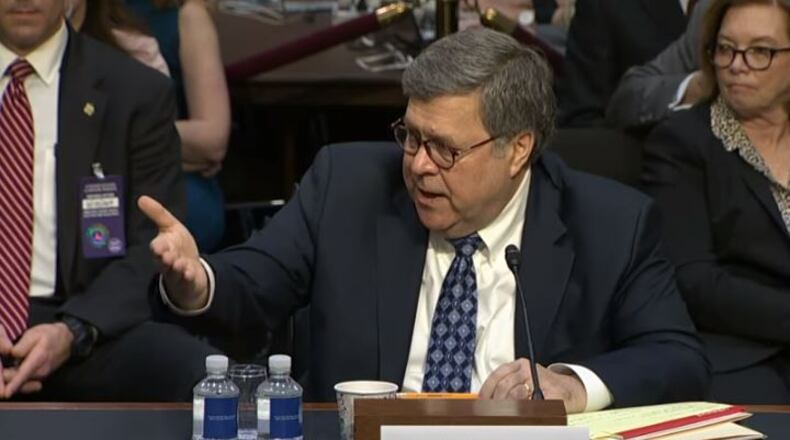"Specifically, we are well along in the process of identifying and redacting the following: (1) material subject to Federal Rule of Criminal Procedure 6(e) that by law cannot be made public; (2) material the intelligence community identifies as potentially compromising sensitive sources and methods; (3) material that could affect other ongoing matters, including those that the Special Counsel has referred to other Department offices; and (4) information that would unduly infringe on the personal privacy and reputational interests of peripheral third parties," Barr wrote in a two page letter.
AG William Barr says he hopes to deliver the Mueller report by mid-April. "Everyone will soon be able to read it on their own." pic.twitter.com/R4vxkb8EnH
— Brad Heath (@bradheath) March 29, 2019
"As we have discussed, I share your desire to ensure that Congress and the public have the opportunity to read the Special Counsel's report," Barr added.
"Everyone will soon be able to read it on their own," the Attorney General wrote.
Democrats urged Barr to tread lightly on redactions, arguing the more that remains secret, the more difficult it will be to assure Americans that all of the facts are being released to the public.
The American people deserve the facts – not a watered-down “interpretation” of Mueller’s findings courtesy of Trump’s handpicked attorney general. The American people should be allowed to judge the facts for themselves. #ReleaseTheReport pic.twitter.com/Yjs2juhLZz
— Nancy Pelosi (@SpeakerPelosi) March 29, 2019
In his letter, Barr specifically said his four page letter delivered on Sunday was not intended to be 'an exhaustive recounting of the Special Counsel's investigation," as the Attorney General noted that the Mueller report is nearly 400 pages long, not including extra explanatory materials.
About the Author

